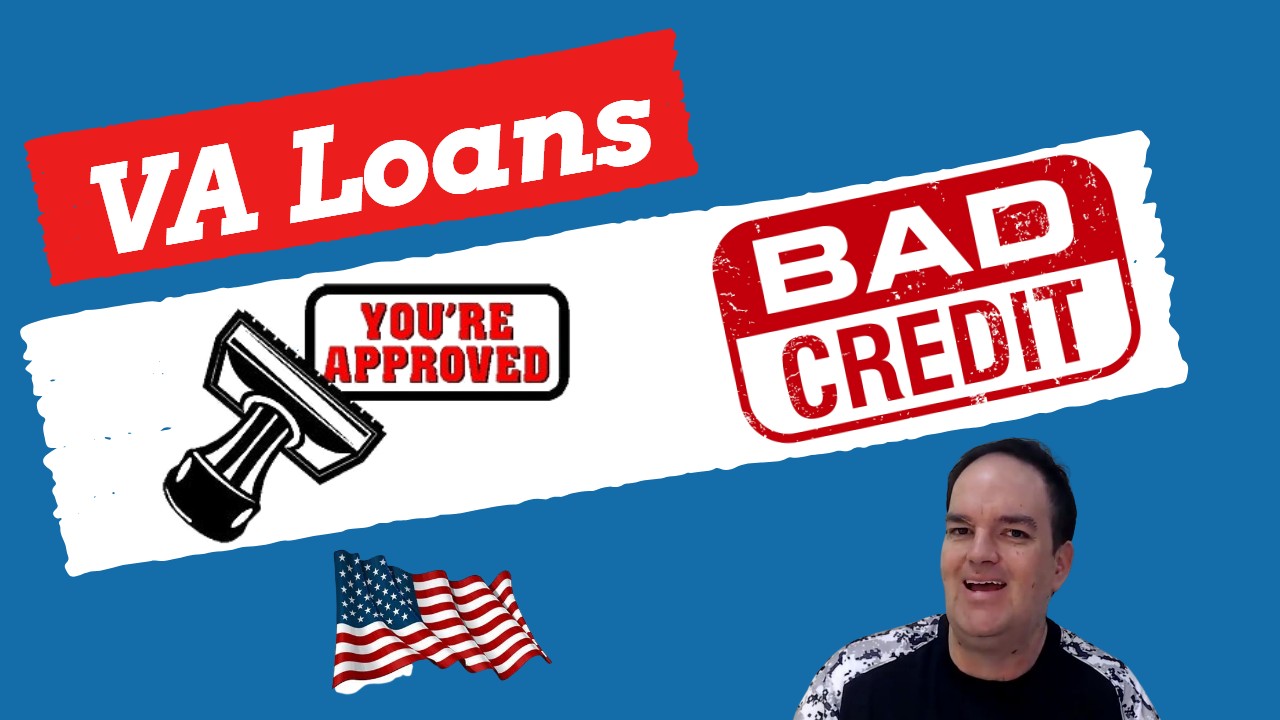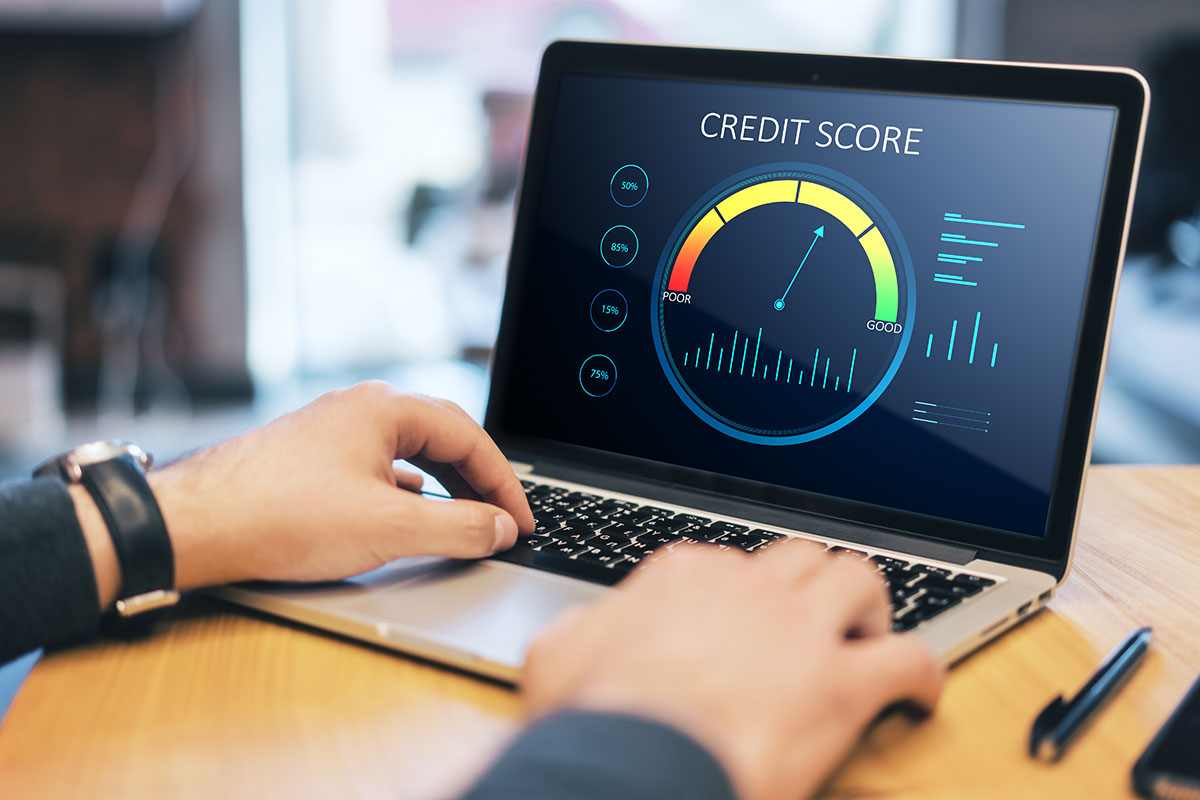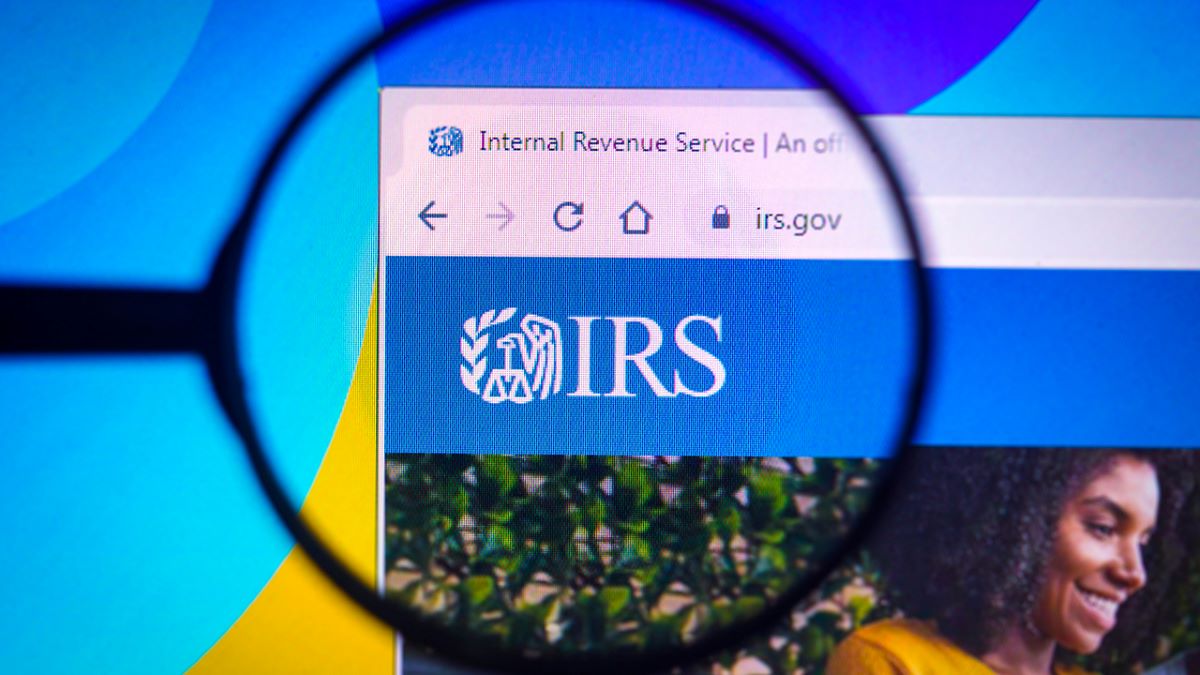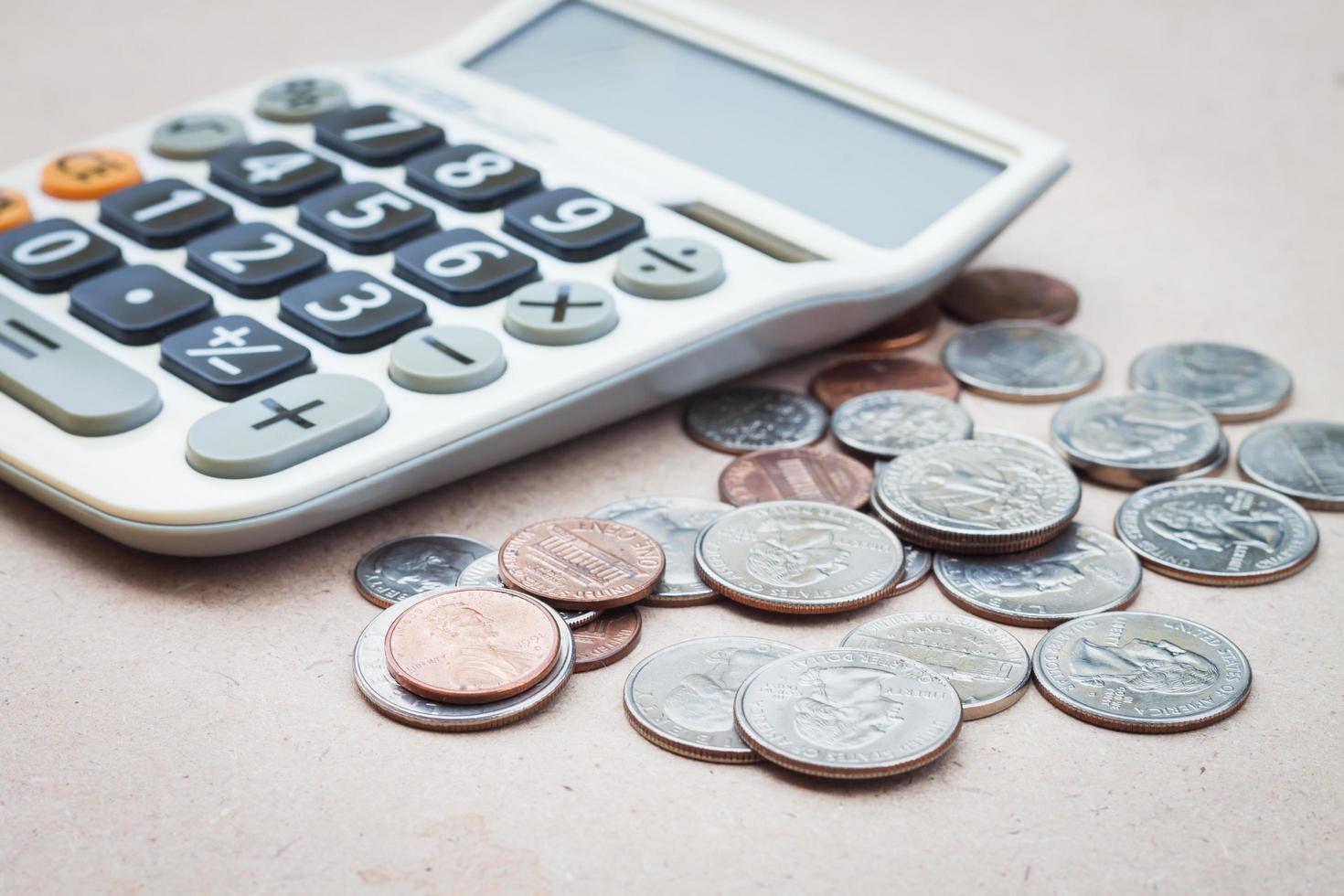Home>Finance>How To Get A Credit Card With No Job And Bad Credit


Finance
How To Get A Credit Card With No Job And Bad Credit
Modified: March 1, 2024
Learn how to get a credit card despite having no job and bad credit. Improve your finance and build your credit with our expert tips and guidance.
(Many of the links in this article redirect to a specific reviewed product. Your purchase of these products through affiliate links helps to generate commission for LiveWell, at no extra cost. Learn more)
Table of Contents
- Introduction
- Understanding Credit Cards
- Factors Affecting Credit Card Approval
- Steps to Get a Credit Card with No Job and Bad Credit
- Option 1: Secured Credit Cards
- Option 2: Prepaid Debit Cards
- Option 3: Authorized User
- Option 4: Credit Cards for Bad Credit
- Option 5: Credit Builder Loans
- Option 6: Alternative Credit Cards
- Tips for Getting Approved
- Managing Your Credit Card Responsibly
- Conclusion
Introduction
Having no job and bad credit can make it challenging to secure a credit card. However, it’s not impossible. In today’s digital age, credit cards have become a necessity for many daily transactions, such as online purchases or car rentals. They can also play a crucial role in building and improving your credit score.
Before we dive into the various options available to get a credit card with no job and bad credit, let’s first understand the basics. A credit card is a financial tool that allows you to borrow money up to a certain limit. It provides you with the convenience of making purchases and paying for them over time, usually with added interest.
When applying for a credit card, several factors affect the approval process. These include your credit score, employment status, income level, and overall credit history. In traditional scenarios, lenders prefer applicants with a stable income and a good credit score, as it showcases financial stability and the ability to repay debts.
However, if you find yourself in a situation where you are unemployed and have a poor credit score, there are still options available to you. Let’s explore some steps you can take to get a credit card even in such circumstances.
Understanding Credit Cards
Before we delve into how to obtain a credit card with no job and bad credit, it’s important to have a solid understanding of how credit cards work. A credit card acts as a revolving line of credit, allowing you to make purchases up to a predetermined limit. Instead of using cash or debit, you borrow money from the credit card issuer and are obligated to repay that amount, typically on a monthly basis.
Additionally, credit cards come with several key features:
- Annual Percentage Rate (APR): The APR represents the cost of borrowing on your credit card. It is expressed as a percentage and may vary depending on factors such as creditworthiness and credit card type. It’s important to pay attention to the APR, as higher rates can lead to increased interest charges.
- Grace Period: The grace period is the time between the end of a billing cycle and the payment due date. During this period, you can avoid interest charges on new purchases if you pay your balance in full by the due date.
- Credit Limit: The credit limit is the maximum amount of money you can spend on your credit card. It is determined by the credit card issuer and is based on factors such as your creditworthiness and income level.
- Minimum Payment: The minimum payment is the lowest amount you are required to pay each month to maintain a good standing with your credit card issuer. However, paying only the minimum can result in significant interest charges and prolonged debt repayment.
- Credit Utilization Ratio: The credit utilization ratio is the percentage of your available credit that you are currently using. It is an important factor in determining your credit score. Keeping this ratio low, ideally below 30%, can positively impact your creditworthiness.
Understanding these aspects will help you make informed decisions when applying for and using a credit card. Now, let’s explore the steps you can take to obtain a credit card even without a job and with bad credit.
Factors Affecting Credit Card Approval
When applying for a credit card, several factors come into play that can influence the approval process. While each credit card issuer has its own criteria, here are some common factors that affect credit card approval:
- Credit Score: Your credit score plays a significant role in determining whether you’ll be approved for a credit card. It reflects your creditworthiness and financial history. Generally, a higher credit score increases your chances of approval, while a lower score may make it more difficult to obtain a credit card.
- Income Level: Lenders want to ensure that you have the means to repay the debt. As such, they often consider your income level when evaluating your application. Having a stable and sufficient income increases your chances of approval.
- Employment Status: Your employment status provides lenders with insight into your ability to make consistent payments. While having a job is not always a requirement, it can positively impact your credit card application.
- Debt-to-Income Ratio: Lenders assess your debt-to-income ratio to determine how much of your income is already allocated to paying down debts. A lower debt-to-income ratio indicates a stronger financial position and may improve your chances of approval.
- Past Payment History: Lenders may review your past payment history to assess your reliability in repaying debts. Late payments, defaults, or bankruptcies can negatively impact your credit card application.
- Length of Credit History: The length of your credit history is also a consideration for lenders. Having a longer credit history gives them more data to assess your financial behavior and reliability in handling credit.
It’s essential to keep these factors in mind when applying for a credit card, especially if you have no job and bad credit. While some traditional credit card options may prove challenging, there are alternative solutions available to overcome these obstacles, enabling you to obtain a credit card. Let’s explore these options in the next section.
Steps to Get a Credit Card with No Job and Bad Credit
Getting a credit card with no job and bad credit may require some extra effort and creativity, but it’s not impossible. Follow these steps to improve your chances of obtaining a credit card:
- Assess Your Financial Situation: Start by assessing your financial situation. Take a look at your credit score, current debts, and income (if any). Understanding your financial standing will help you determine which credit card options are suitable for you.
- Review Your Credit Report: Obtain a copy of your credit report from one of the major credit bureaus and review it thoroughly. Look for any errors or discrepancies that may be negatively impacting your credit score. If you find any inaccuracies, dispute them to have them corrected.
- Set Financial Goals: Define your financial goals and what you hope to achieve with a credit card. This will help you stay focused and choose the right credit card option that aligns with your objectives.
- Educate Yourself: Research different credit card options available for individuals with bad credit or no job. Familiarize yourself with the terms and conditions, fees, and benefits associated with each card.
- Consider Secured Credit Cards: Secured credit cards are an excellent option for individuals with bad credit or no job. With a secured credit card, you provide a deposit as collateral, and your credit limit is typically equal to the deposit amount. This reduces the risk for the issuer and increases your chances of approval.
- Explore Prepaid Debit Cards: Prepaid debit cards are another alternative if you’re unable to obtain a traditional credit card. These cards are not linked to a credit line but allow you to make purchases within the amount loaded onto the card. While they don’t help build credit, they can still provide the convenience of card-based transactions.
- Consider Becoming an Authorized User: If you have a trusted friend or family member with good credit, you may be able to become an authorized user on their credit card. This allows you to use the card and build credit history as long as the primary cardholder maintains responsible usage.
- Explore Credit Cards for Bad Credit: Some financial institutions offer credit cards specifically designed for individuals with bad credit. These cards may have higher fees or interest rates, but they provide an opportunity to rebuild your credit when used responsibly.
- Consider Credit Builder Loans: Credit builder loans are a type of installment loan designed to help individuals build or repair their credit. While not technically a credit card, successfully repaying a credit builder loan can positively impact your credit and increase your chances of qualifying for a credit card in the future.
- Explore Alternative Credit Cards: Look for alternative credit card options, such as retail store credit cards or secured cards offered by credit unions. These may have more flexible approval criteria and can be a stepping stone to obtaining a traditional credit card.
By following these steps and being proactive in improving your creditworthiness, you can increase your chances of obtaining a credit card even with no job and bad credit. However, it’s important to remember that responsible credit card usage is crucial. Use your credit card wisely, make payments on time, and keep your balances low to improve your credit over time.
Option 1: Secured Credit Cards
Secured credit cards are an excellent option for individuals with bad credit or no job who want to rebuild their credit history. These cards require a cash deposit that serves as collateral against the credit limit. The deposit amount typically determines the credit limit you will receive.
Secured credit cards work similarly to traditional credit cards. You can make purchases up to your credit limit and must make monthly payments. Making on-time payments and keeping your balance low can help improve your credit score over time.
Here are some key benefits and considerations of secured credit cards:
- Credit Building: Secured credit cards provide an opportunity to demonstrate responsible credit behavior and improve your credit score. Timely payments and responsible usage can positively impact your credit history.
- Higher Approval Odds: Since secured credit cards require a deposit as collateral, the risk for the issuer is significantly reduced. This increases approval odds, even for individuals with bad credit or no job.
- Flexible Credit Limits: Your credit limit is typically determined by the amount of the deposit you provide. This allows you to have better control over your spending and avoid accumulating excessive debt.
- Interest and Fees: It’s important to carefully review the terms and conditions of any secured credit card. Some cards may have higher interest rates or fees, so it’s essential to understand the costs associated with the card.
- Graduation to Unsecured Card: With responsible use and consistent on-time payments, some secured credit card issuers may offer the option to transition to an unsecured credit card. This means you can eventually have your deposit refunded and receive a traditional credit card.
When considering a secured credit card, research different issuers and compare their offerings. Look for cards with low fees, reasonable interest rates, and a history of successfully graduating cardholders to unsecured credit cards.
Remember, responsible usage is crucial with secured credit cards. Aim to make timely payments, avoid maxing out your credit limit, and keep your credit utilization ratio low. Over time, as you build a positive credit history, you can improve your overall creditworthiness and be eligible for traditional credit cards with better terms and conditions.
Option 2: Prepaid Debit Cards
Another option for individuals with bad credit or no job is to consider using prepaid debit cards. Prepaid debit cards function similarly to traditional debit cards but with some distinct differences. With a prepaid debit card, you load funds onto the card in advance, and these funds can then be used for purchases.
Here are some key aspects to consider when it comes to prepaid debit cards:
- No Credit Check: Prepaid debit cards do not require a credit check or approval process. Since you are using your own funds, there is no need for the card issuer to assess your creditworthiness or employment status.
- No Debt or Credit Line: With prepaid debit cards, you can only spend the funds that you have loaded onto the card. This means you can avoid accumulating debt or going over your budget.
- Convenience: Prepaid debit cards offer the convenience of card-based transactions. You can use them for online purchases, in-store payments, and even withdraw cash from ATMs.
- No Credit Building: One important aspect to note is that prepaid debit cards do not typically help you build credit since they are not linked to a credit line or reported to credit bureaus.
- Fees: It’s important to review the fee structure associated with prepaid debit cards. Some cards may charge fees for initial setup, monthly maintenance, ATM withdrawals, and balance inquiries. Choose a card with reasonable fees that align with your financial needs.
Prepaid debit cards can be a suitable option for individuals with bad credit or no job who want to manage their spending and avoid potential debt. However, if your goal is to build or improve your credit history, it’s important to consider other credit-building options, such as secured credit cards or credit builder loans.
Remember to research different prepaid debit card options and compare their fees, features, and benefits. Look for cards with minimal fees and a wide acceptance network. By using prepaid debit cards responsibly, you can maintain financial control while exploring alternative options to improve your credit situation.
Option 3: Authorized User
If you have a trusted friend or family member with good credit, becoming an authorized user on their credit card can be a viable option to access a credit card with no job and bad credit. As an authorized user, you can use the primary cardholder’s credit card and potentially benefit from their positive credit history.
Here are some key points to consider when becoming an authorized user:
- Establishing Credit History: Being an authorized user on someone else’s credit card can help you establish or improve your credit history. Positive card activity, such as making timely payments and maintaining a low credit utilization, can reflect positively on your credit report.
- Trust and Communication: It’s crucial to have a high level of trust and open communication with the primary cardholder. Make sure you both have a clear understanding of expectations, responsibilities, and spending limits.
- Credit Impact: While being an authorized user can positively impact your credit if the primary cardholder practices responsible credit habits, keep in mind that negative activity, such as missed payments or high balances, can also affect your credit negatively.
- Discuss with the Cardholder: Before becoming an authorized user, have a conversation with the primary cardholder. Ensure that they are comfortable adding you to their account and that they understand the impact it may have on their credit.
- Monitor Credit Activity: Stay vigilant in monitoring the credit card activity and statements. Regularly check for any errors or unauthorized charges to protect both your credit and the primary cardholder’s credit.
It’s important to note that not all credit card issuers report authorized user activity to credit bureaus. Before pursuing this option, confirm with the card issuer whether they report authorized user activity. Reporting can help you build credit, while non-reporting may not have a direct impact on your credit history.
Keep in mind that becoming an authorized user should be a temporary solution to improve your credit. It’s essential to work towards establishing credit in your own name over time, whether through secured credit cards, credit builder loans, or other methods.
Remember that being an authorized user is a joint responsibility, so make sure to maintain open communication, make responsible credit decisions, and nurture trust in your relationship with the primary cardholder.
Option 4: Credit Cards for Bad Credit
If you have bad credit and are unable to qualify for traditional credit cards, there are specific credit card options designed for individuals in similar situations. These credit cards for bad credit cater to individuals with low credit scores or limited credit history. While the terms and conditions may vary, they offer an opportunity to rebuild your credit with responsible usage.
Here are some key points to consider when exploring credit cards for bad credit:
- Easier Approval: Credit cards for bad credit are specifically designed for individuals with less than ideal credit. As a result, they often have more lenient approval criteria, making them more accessible to applicants with bad credit or no job.
- Higher Interest Rates and Fees: Given the higher risk associated with bad credit, these credit cards often come with higher interest rates and fees compared to traditional credit cards. It’s important to carefully review and compare the terms and conditions before applying.
- Credit Building Opportunities: While credit cards for bad credit may have higher costs, they provide an opportunity to rebuild your credit history. By making on-time payments and keeping your credit utilization low, you can demonstrate responsible credit behavior and improve your credit score over time.
- Secured vs. Unsecured Cards: Credit cards for bad credit come in both secured and unsecured options. Secured cards require a security deposit as collateral, while unsecured cards do not. Secured cards are generally easier to obtain but may require upfront funds.
- Reviews and Comparisons: Before applying for a credit card for bad credit, review and compare different options available to you. Look for cards with lower fees, reasonable interest rates, and positive reviews from customers.
It’s important to note that while credit cards for bad credit can provide opportunities to rebuild credit, responsible usage is paramount. Make sure to pay your bills on time and keep balances low to avoid getting further into debt. Over time, as you demonstrate positive credit behavior, you may become eligible for better credit card options with more favorable terms and conditions.
Remember to view credit cards for bad credit as a stepping stone toward better financial health. Use them as a tool to rebuild your credit, but also work towards establishing a strong credit profile through other means, such as improving your income, reducing debt, and demonstrating responsible financial management.
Option 5: Credit Builder Loans
If you’re looking to build or improve your credit while also accessing funds, credit builder loans can be a helpful option. Credit builder loans are specifically designed to help individuals establish a positive credit history or rebuild their credit. These loans typically work by setting aside the borrowed funds in a savings account or certificate of deposit (CD), which you can access after successfully repaying the loan.
Here are a few important points to consider when exploring credit builder loans:
- Credit Building Opportunity: Credit builder loans provide an opportunity to establish a positive credit history over time. By making regular, on-time payments, you demonstrate responsible credit behavior, which can help improve your credit score.
- Loan Process: When you apply for a credit builder loan, the amount you borrow is typically held in a separate account, ensuring that you have your funds available once the loan is fully repaid. This allows you to receive the loan proceeds while building credit through timely payments.
- No Upfront Cash Required: Unlike secured credit cards, credit builder loans don’t require an upfront deposit. Instead, you borrow the funds, which are secured by the savings account or CD held by the lender.
- Interest Payments: Credit builder loans may involve paying interest on the borrowed amount. The interest rate may be higher than traditional loans, so it’s important to review the terms and conditions before committing.
- Loan Terms: Credit builder loans typically have shorter terms, ranging from a few months to a couple of years. The shorter repayment period allows you to build credit in a relatively short amount of time.
- Regular Payments: It’s important to make regular, on-time payments toward your credit builder loan. Consistent timely payments demonstrate your creditworthiness and responsible financial behavior to lenders and credit bureaus.
- Check Reporting Policies: Ensure the lender reports your loan activity to the credit bureaus. Reporting the loan payments helps establish a credit history and improve your credit score.
By successfully repaying a credit builder loan, you can establish a positive payment history and improve your creditworthiness. This can open doors to better credit card options, loans, and other financial opportunities in the future.
Remember, it’s essential to make payments on time and in full. Treat the credit builder loan with the same responsibility you would give to any other loan or credit obligation. Building a positive credit history takes time and patience, so remain consistent in your efforts to improve your creditworthiness.
Option 6: Alternative Credit Cards
If you’re unable to qualify for traditional credit cards due to bad credit or no job, exploring alternative credit card options can provide alternative solutions. These alternative credit cards are designed for individuals who may not meet the typical criteria for traditional credit cards but still offer the opportunity to access credit and rebuild their credit history.
Here are a few alternative credit card options to consider:
- Retail Store Credit Cards: Many retail stores offer their own branded credit cards. These cards may have less stringent approval requirements and can be easier to obtain. However, keep in mind that they often have higher interest rates and limited usability outside of the specific retailer.
- Secured Credit Cards: Secured credit cards, mentioned earlier, also fall under the category of alternative credit cards. By providing a deposit as collateral, secured credit cards offer a way to demonstrate responsible credit behavior and can gradually improve your credit score.
- Credit Union Credit Cards: Credit unions are known for offering more flexible credit terms compared to traditional banks. They may have credit card options specifically tailored to individuals with bad credit or no job. Consider joining a credit union to explore their credit card offerings.
- Alternative Financial Services: Some financial service providers specialize in offering credit products to individuals with bad credit or limited credit history. These may include online lenders or fintech companies that provide alternative credit solutions.
- Peer-to-Peer Lending: Peer-to-peer lending platforms connect borrowers with individual lenders. While not strictly credit cards, these platforms can offer personal loans that can be used as an alternative credit option. Research reputable peer-to-peer lending platforms that cater to borrowers with less-than-perfect credit.
When considering alternative credit cards, it’s important to carefully review the terms and conditions, including interest rates, fees, and credit reporting practices. Look for options that align with your financial situation and goals.
Remember that responsible usage is key with alternative credit cards as well. Make timely payments, keep balances low, and demonstrate financial discipline. By doing so, you can improve your creditworthiness and increase your chances of qualifying for better credit options in the future.
Tips for Getting Approved
When trying to get approved for a credit card with no job and bad credit, it’s important to be proactive and take steps to improve your chances of approval. Here are some essential tips to help increase your likelihood of getting approved for a credit card:
- Improve Your Credit Score: Work on improving your credit score by paying bills on time, reducing debt, and disputing any errors on your credit report. Even small improvements in your credit score can make a significant difference in your credit card application.
- Build a Stable Income: While having a job is not always a requirement, having a stable income can positively impact your credit card application. Consider alternative sources of income, such as freelance work or part-time jobs, to demonstrate your ability to make consistent payments.
- Provide Proof of Income: If you have income from sources other than a traditional job, gather documentation to support your income claims. This could include bank statements, tax returns, or other official documents that showcase your financial stability.
- Research Credit Card Options: Thoroughly research different credit card options available for people with bad credit or no job. Compare interest rates, fees, and features to find the card that best fits your needs and financial situation.
- Apply for the Right Card: Focus on applying for credit cards that are tailored to individuals with bad credit or limited income. Applying for cards that are more likely to approve applicants with your profile increases your chances of success.
- Consider Joint Applications: If you have a spouse, partner, or family member with a stable income and good credit, consider applying for a credit card jointly. Their positive credit history and income can strengthen your application.
- Add Explanation to Your Application: Use the application’s additional comments section to explain your situation and the steps you’ve taken to improve your creditworthiness. Providing context and demonstrating your commitment to responsible financial behavior can work in your favor.
- Pay Down Existing Debts: Lowering your overall debt can improve your debt-to-income ratio and demonstrate your ability to manage your finances. Prioritize paying down outstanding debts before applying for a credit card.
- Start with Secured Credit Cards: Consider starting with a secured credit card, as they are generally more accessible for individuals with bad credit or no job. By building a positive payment history with a secured card, you can strengthen your credit profile over time.
- Be Patient: Getting approved for a credit card may take time and perseverance. Keep working on improving your credit and financial situation, and eventually, you’ll find a credit card that suits your needs.
Remember, each credit card issuer has its own approval criteria, and your individual circumstances may vary. While these tips can increase your chances of getting approved, there is no guaranteed formula. Be patient, stay committed to responsible financial habits, and continue working towards improving your creditworthiness.
Managing Your Credit Card Responsibly
Once you have obtained a credit card with no job and bad credit, it’s crucial to manage it responsibly to make the most of your credit-building efforts. Here are some essential tips for managing your credit card responsibly:
- Create a Budget: Set a budget and track your expenses to ensure you can make timely payments and avoid accumulating unnecessary debt. Be mindful of your income and spending habits to stay within your means.
- Pay on Time: Make your credit card payments on time to establish a positive payment history. Late payments can have a significant negative impact on your credit score and may result in late payment fees.
- Pay in Full: Whenever possible, pay your credit card balance in full each month to avoid paying interest charges. If you cannot pay the full amount, aim to pay more than the minimum payment to reduce interest costs.
- Keep Utilization Low: Aim to keep your credit utilization ratio, which is the percentage of your credit limit you are using, as low as possible. Ideally, keep it below 30% to demonstrate responsible credit management.
- Avoid Maxing Out the Card: Maxing out your credit card can harm your credit score and may signal potential financial instability to lenders. Keep your credit card balance well below the credit limit to avoid negative impacts.
- Review Your Statements: Regularly review your credit card statements to ensure they are accurate and to identify any unauthorized charges. If you notice any discrepancies, report them to your card issuer immediately.
- Monitor Your Credit: Keep an eye on your credit report regularly to track your progress and spot any potential errors or issues. You can obtain free credit reports from each of the major credit bureaus once per year.
- Limit New Credit Applications: Avoid applying for multiple new credit cards or loans within a short period. Each application can result in a hard inquiry on your credit report, which can temporarily lower your credit score.
- Communicate with Your Card Issuer: If you are struggling to make payments or facing financial hardships, communicate with your credit card issuer. They may be able to offer flexible payment options or suggest resources to help you manage your debt.
- Know Your Card’s Terms and Conditions: Familiarize yourself with the terms and conditions of your credit card, including interest rates, fees, and grace periods. Understanding these details will help you make informed financial decisions.
By managing your credit card responsibly, you not only build a positive credit history but also develop financial discipline and responsible financial habits. Use your credit card as a tool to improve your creditworthiness and work towards achieving your long-term financial goals.
Conclusion
Obtaining a credit card with no job and bad credit may present challenges, but it is not an impossible feat. By understanding the options available and implementing the right strategies, you can still access credit and work towards rebuilding your creditworthiness.
We explored various options, including secured credit cards, prepaid debit cards, becoming an authorized user, credit cards for bad credit, credit builder loans, and alternative credit cards. Each option has its own requirements and benefits, so it’s important to choose the one that aligns with your financial situation and goals.
Additionally, we discussed essential tips for improving your chances of getting approved for a credit card, such as improving your credit score, demonstrating a stable income, researching credit card options, and considering alternatives like joint applications or explanation statements.
Once you have obtained a credit card, managing it responsibly is key. Paying on time, keeping your credit utilization low, and reviewing your statements regularly are all crucial steps in maintaining a positive credit history and improving your credit score over time.
Remember, the journey to rebuilding your credit takes time and patience. Be persistent in implementing good financial habits and stay committed to your financial goals. As you gradually improve your creditworthiness, you will open doors to better credit options and financial opportunities.
Always be aware of the terms and conditions of your credit card, stay informed about your credit status, and seek guidance whenever you face financial challenges. With determination and responsible credit management, you can overcome the obstacles of bad credit and no job to pave the way for a brighter financial future.














